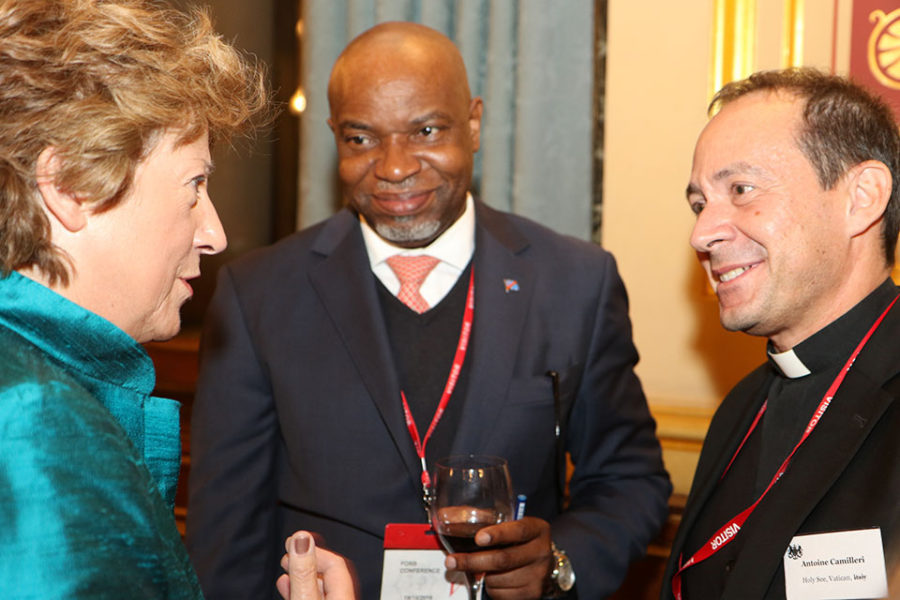20th October 2016 Holy See
Can freedom of religion help counter violent extremism?

I am back in London this week with the Holy See’s Monsignor Antoine Camilleri for the Foreign Office’s conference on how freedom of religion and belief can help counter violent extremism. The discussion has been persuasive. I was particularly struck by the following points.
US Ambassador Saperstein argued that you cannot have stability without religious freedom. If you drive religion underground, he said, you foster a sense of alienation and grievance that can be abused by extremists.
Tom Farr (US) said that whereas in the secular west we keep religion out of public life, in much of the rest of the world (including the USA) it was accepted that people engage in public life on the basis of their religious belief. This was a better model for the Muslim world than western secularism.
Lord Alton quoted Lise Doucet: if you don’t understand religion, including the abuse of religion, you won’t understand what is happening in our world.
Shaykh Abdallah Bin Bayyah from the UAE said religion was a type of energy and, like nuclear energy, it could be used for good or to cause destruction, to promote peace or war.
Most were agreed on the solution. Violent extremism could only be defeated by religious ideas or, in the words of Shaykh Abdallah, we had to use religion to cure religion, by helping people return to a true understanding. ‘People of intelligence’ needed to explain the peaceful interpretation of texts that were used to justify violence. Similarly Coptic Bishop Angaelos said the Middle East was a religiously-minded region, and that religious leaders had an important role there in addressing religious extremism.
There were some differences on whether the right to freedom of religion and belief and other human rights (e.g. to freedom of expression) could limit each other. Andrew Copson for the humanists said that a debased form of freedom of religion or belief could be used as code for intolerance. Shaykh Abdallah said freedom of expression should not include the freedom to curse or mock others’ sacred beliefs. Bishop Michael Nazir Ali warned against secular totalitarianism.
It has been thought-provoking to look at current conflicts from a different angle. The Vatican, with its network of relationships with other religions, will continue to be at the centre of these discussions, and we at the British Embassy will work closely with them on that.